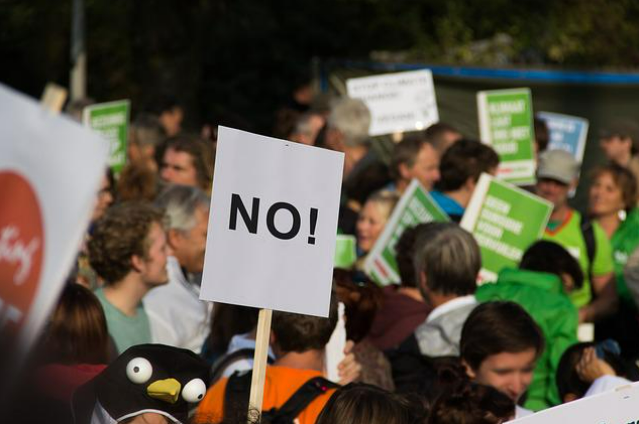
In a room of extremists, we march with muffed voices. Are we enough? What is it worth? We ask at democracy’s demise. India, from its inception, has been a country in constant turmoil. Since the time of partition and its independence, the nation has been facing national challenges yet to solve.
The constant battle against sexism, racial and social injustice is roaring through the nation. But why is change so silent? Surely this democracy has a popular vote on the popular global public interests. To understand how to solve the problem at hand we must understand the reason for not being able to solve it. What makes public interest issues not interesting enough to raise one’s voice? What decided to voice or not to voice?
The first reason is quite a simple psychological bias called the bystander effect. It’s where a boy falls on the road and no one helps him up, why does no one help him get up? Because everyone thinks, someone else will help the boy and it’s okay if I don’t. That’s the state of the oppressed. With such a huge population, injustice is everywhere asking for support, most of the population is just waiting for someone else to provide help.
Another set of people are victims of the psychological effect of confirmation bias and peer pressure. Confirmation bias is where a person searches for, interprets or recalls information in a way that confirms their beliefs, peer pressure comes into effect when the people in a person’s surroundings cause an opinion, activity or behaviour in the person.
A person’s behaviour is based on the opinions, beliefs and behaviour they are subjected to in their surroundings. Opinions on racial hate, one’s views on gender, social equality and one’s views on love and sexual orientation are formed by family and friends and fueled by confirmation bias. If a person believes that women are bad drivers, they will find cases of women driven car accidents to confirm their belief. Either the person may actually start sharing the same behaviour or change it to fit in the social situation.
The partition took place a long time back, yet many growing children have an opinion on a race based on the knowledge absorbed by their surroundings. In other situations, the voices against social injustice are muffled by fear of being rejected by known society, or one may just fear facing the repercussions of voicing their support for the oppressed.
The most important part of understanding injustice is to look at privilege. 4:00 am wake up, get ready, get on the public transport, and get to work. The aim for today is to make it to tomorrow. For a huge percentage of the country, this is life. The goal of life is to make it for a better tomorrow. If privilege permits, save for a rainy day. If luxury yet permits, save for a desire. India is a country of Hustle. In this hustle, should you have to leave your grind towards the personal reward today for the greater good of the community, you are using a privilege. To protest is to privilege. So the simple approach for most is to not let it bother them, till they must stare in the eyes of the demon of injustice.
The other side of the coin of privilege is the ones too privileged to face injustice. That is what a lot of the upper-middle class is able to do with their participation in the fight for justice being a
tweet or a post on Instagram based on the popular take for social points rather than the actual outcome. This side of privilege rests on a bed so warm and secure that these citizens may not share the public interest issues. Some are so privileged that should they be inconvenienced with an issue, they could choose their form of justice with the snap of a finger.
The promise of solving these issues of national public importance is used heavily by Politicians. Those that hope rest their faith in the one candidature that sings their desires the sweetest. Luring ones gripped by oppression and injustice. The promise of freedom from fear the masses desire. It’s only when you take a step back and realize if there are no public interest issues there would be nothing to tie one’s hopes to.
The other political aspect playing a part would be fear. Indians are also the most widespread origin globally found. We saw a lot of people fight for changing laws in other countries, raising voices against racial injustice in the United States of America with the ‘Black Lives Matter’ movement. We even had Indians plea for Afghanistan’s recent change of events. Then why are our voices so muffled when injustice is in our nation? The simple answer is fear. Fear that should you speak against the deeds of the unjust and oppressive, power will knock you down.
These reasons bring clarity to the state of affairs with our approach toward issues of public interest. While, Indians are out, innovating at a globally recognized level from other nations. One is proud but one thinks it is our mother country that should be the one to nurture this spirit and watch it grow. To not just feed and shelter the hatchling but to watch it fly and soar in the clear blue fearless Indian skies. Alas, how can the seeds of progress grow when the farming grounds frequent turbulent thunderstorms?
No matter how dire the situation seems, where there is a will, there is a way. Awareness is the first step to transformation. India, from its inception, has been a country with constant turmoil, but it is also the nation that has been wielding the bat and strikes to create history. We shall build a house of justice and equality with pillars so strong that no sound of thunder or the whoosh of the storm may disturb the rising future of India.
